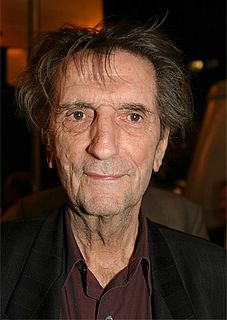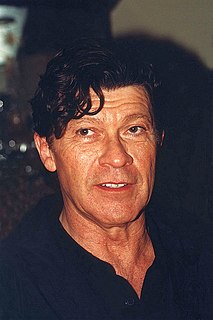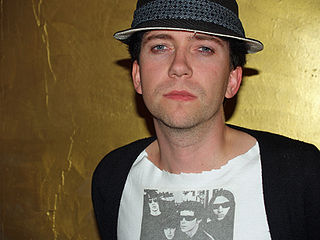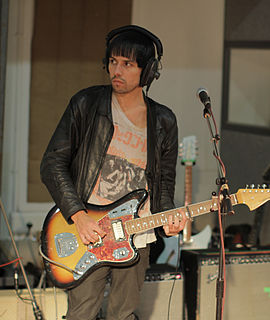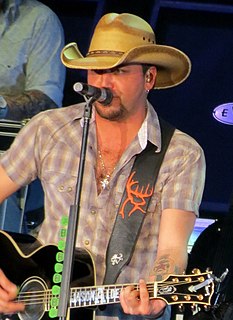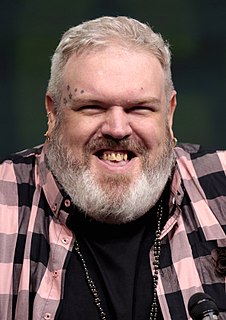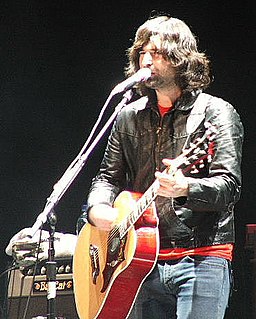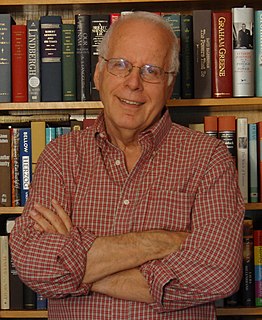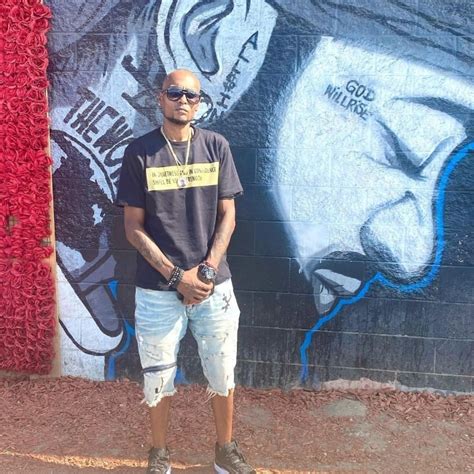A Quote by Harry Dean Stanton
I don't recall what the first record I bought was, but I definitely remember hearing Creedence's 'Born on the Bayou' and going out and buying it. The guitar and drums in that band were really good. I loved the words to the title track, and Fogerty's voice sounded just great.
Related Quotes
And at the time, for one of the few times in my life I didn't have a band, I just had myself and the guitar, so I was going to have to do something with just my voice, just the guitar and just my songs that was going to move someone enough to give me a shot. So I wrote songs that were very lyrically alive and lyrically dense. And they were unique, but it really came out of the motivation to - or I understood it was - I was going to have to make my mark that way.
The first record was basically a quick, fast record. The second record, we were going for more of a poppier sound - like a heavy pop sound. For 'Rocket to Russia,' we'd sort of reached our pinnacle. We'd gotten really good at what we were doing, so that's like my favorite record - that's a really good record. It's just great from beginning to end.
I don't really care about labels that much. I wouldn't really call our music retro. There are influences of things from the past, which there is in everything. I think we're quite a modern band, actually. We don't record with old equipment. We use computers and programmed drums. We don't use any guitar amplifiers. We're very much a modern band in the sense that we love computers and what they can do to music. I guess we're just good at a different sound.
The Replacements definitely changed my life, I think they're just amazing. The thing that blew me away [a band like that] is that you'll get into a band from hearing one interesting song and then you'll realise that you've got seven or eight albums to listen to afterwards and every single one of them is a great record. The Replacements definitely changed my life.
That's the way I came up, writing and recording at home. I developed by playing everything myself. I was a drummer first and that's my favorite instrument to play. Once I get the drums done, everything else comes real quick. Also, we track in my friends' garage, which is really small ... there's not really room to record live with a band.
One of my great frustrations for 35 years at the paper was the fact I couldn't play a record for the reader when I was writing about an artist. How can you describe the beauty of Emmylou Harris' voice without hearing it, the sensual lilt of a Duane Allman guitar solo without actually hearing it, or the growl of Johnny Rotten without hearing it?
There's a lot of discussion about whether you should be a good live band or a good studio band. I think you can use the studio to make a great "studio record" and not necessarily have to reproduce exactly that on stage, but still be a great "live band." Having said that, if what you're going for is just the raw capture of your live sound, then that's cool, too - go for it! I enjoy working in the studio, though, and while I try to get near to an approximation of what's going on onstage, it's not my first priority usually.
